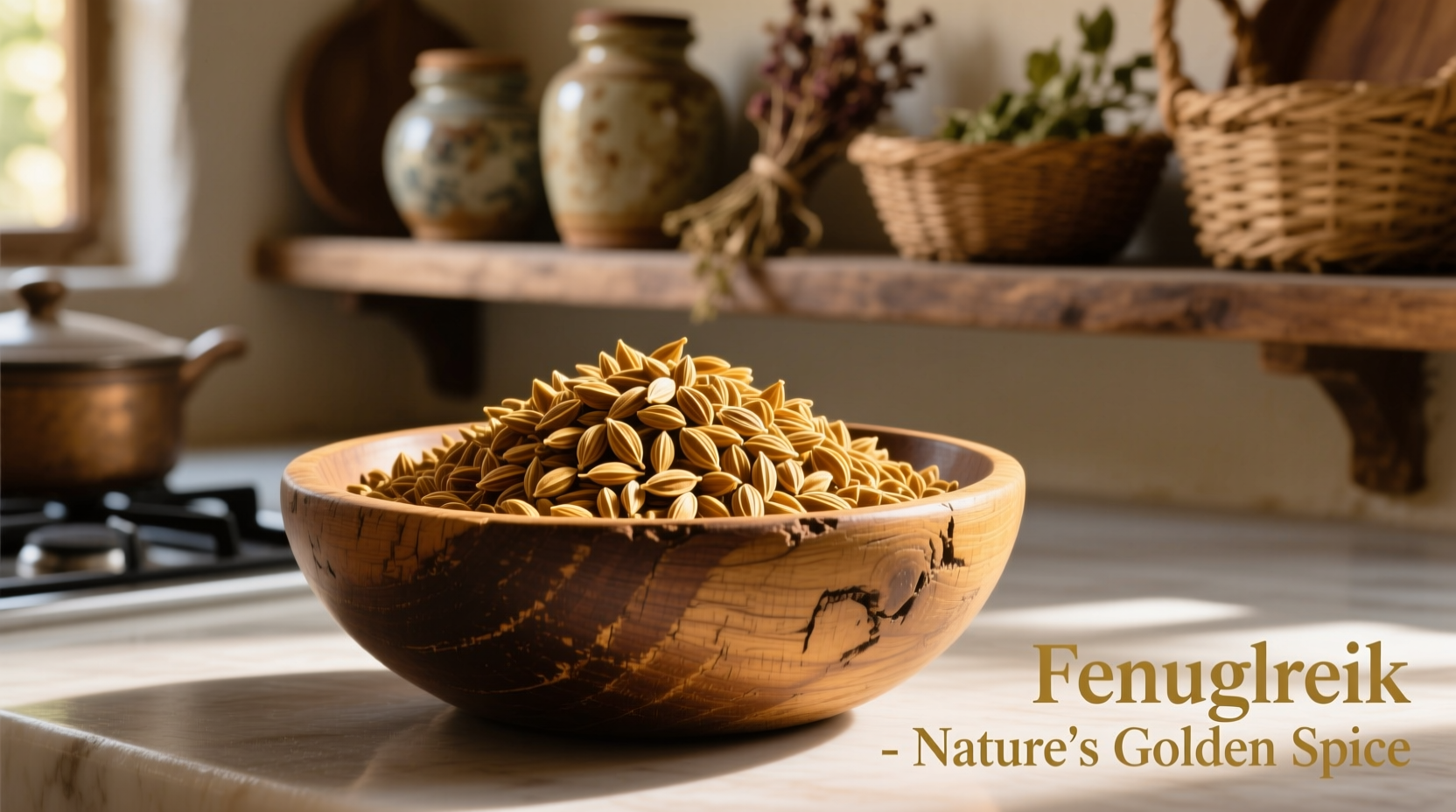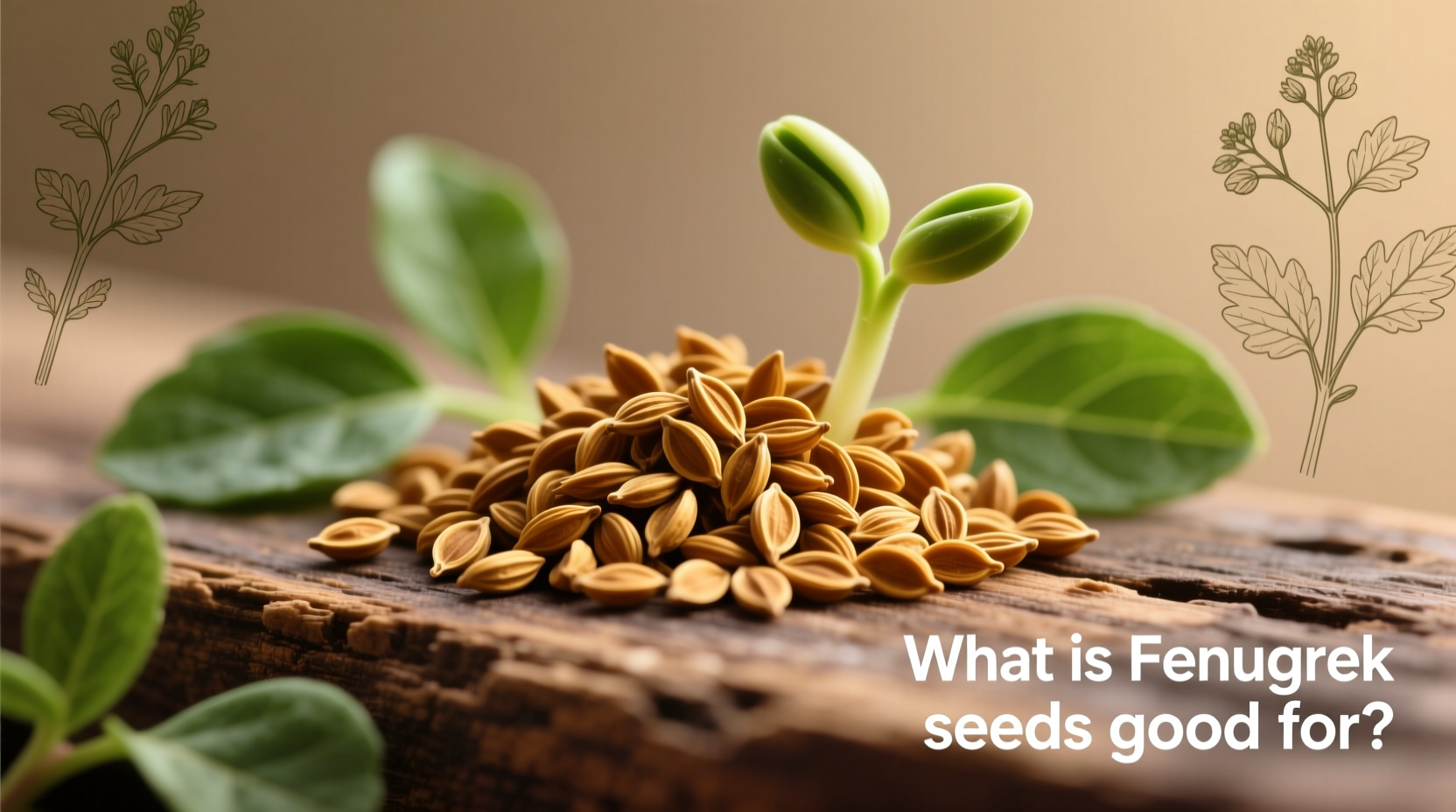For centuries, cultures across the Mediterranean, South Asia, and North Africa have relied on fenugreek seeds for their remarkable healing properties. Modern science is now confirming what traditional medicine practitioners have known for generations: these small, amber-colored seeds pack a powerful therapeutic punch. Let's explore exactly what fenugreek seeds are good for, separating evidence-based benefits from folklore.
Science-Backed Health Benefits of Fenugreek Seeds
When you're searching what is fenugreek seeds good for, you'll find numerous claims. But which benefits have actual scientific backing? Research published in the Journal of Dietary Supplements confirms fenugreek's effectiveness for several specific health concerns.
Blood Sugar Management
Fenugreek seeds demonstrate impressive potential for people managing type 2 diabetes. The fiber galactomannan and amino acid 4-hydroxyisoleucine work synergistically to slow carbohydrate digestion and improve insulin sensitivity. A clinical trial from the National Center for Biotechnology Information showed that consuming 10 grams of fenugreek seed powder daily reduced fasting blood glucose by 25% in diabetic patients over 8 weeks.
| Benefit | Traditional Use | Scientific Evidence | Recommended Dosage |
|---|---|---|---|
| Blood Sugar Control | Ayurvedic medicine for "sweet urine" conditions | Multiple clinical trials confirm effectiveness | 5-10g daily seed powder |
| Lactation Support | Traditional galactagogue across multiple cultures | Studies show 500-1000mg increases milk production | 500-1000mg standardized extract |
| Testosterone Boost | Ancient Middle Eastern remedy for vitality | Clinical evidence shows significant increases in men | 500-600mg daily extract |
| Digestive Health | Traditional remedy for indigestion | Animal studies confirm anti-ulcer properties | Tea made from 1-2 tsp seeds |
Natural Lactation Support
For nursing mothers researching what fenugreek seeds good for breastfeeding, the evidence is compelling. The compound diosgenin acts as a phytoestrogen that stimulates milk production. A study published in the International Breastfeeding Journal found that mothers taking fenugreek supplements produced 49% more breast milk within 72 hours compared to the control group. Most lactation consultants recommend 2-3 capsules (580-610mg each) three times daily, with effects typically noticeable within 24-72 hours.

Testosterone and Male Vitality
Men seeking natural ways to boost testosterone will find fenugreek seeds particularly valuable. Research in the Journal of the International Society of Sports Nutrition demonstrated that men taking 500mg of fenugreek extract daily experienced significant increases in free testosterone levels, improved sexual function, and greater strength gains during resistance training. Unlike synthetic supplements, fenugreek works gradually without dangerous hormonal spikes.
Traditional Applications Across Cultures
Fenugreek's journey through human history reveals why this spice remains relevant today. Understanding what is fenugreek seeds good for in traditional medicine provides context for modern applications.
Historical Timeline of Fenugreek Uses
- 1500 BCE: Ancient Egyptian texts document fenugreek for childbirth and inflammation
- 1st Century CE: Greek physician Dioscorides recommends it for respiratory conditions
- 500 CE: Ayurvedic texts prescribe fenugreek for digestive disorders
- 10th Century: Persian physicians use it to treat diabetes symptoms
- 1800s: European herbalists adopt fenugreek for wound healing
- 1980s: Modern research begins isolating active compounds
- Present: Over 40 clinical trials confirm specific therapeutic applications
Culinary Applications: More Than Just Medicine
When exploring what fenugreek seeds good for cooking, you'll discover their unique flavor profile enhances numerous dishes. These seeds have a distinctive maple-like aroma when toasted, making them valuable in both savory and sweet applications.
How to Use Fenugreek Seeds in Your Kitchen
- Dry roasting: Toast seeds in a dry pan for 2-3 minutes until fragrant to enhance sweetness
- Tempering: Add to hot oil at the beginning of cooking for Indian curries and dals
- Spice blends: Essential component in panch phoron (Bengali five-spice) and berbere (Ethiopian spice mix)
- Flavor enhancer: Add to bread doughs, especially whole grain varieties
- Sweet applications: Use in small amounts in maple-flavored desserts as natural flavoring
Important Safety Considerations
While fenugreek offers numerous benefits, understanding what fenugreek seeds good for and not good for is crucial for safe usage. Certain populations should exercise caution:
When Fenugreek Isn't Appropriate
- Pregnant women: May stimulate uterine contractions in high doses
- People on blood thinners: Contains coumarin which may increase bleeding risk
- Those with peanut allergies: Fenugreek belongs to the same plant family
- Pre-surgery patients: Should discontinue use at least 2 weeks before procedures
The European Medicines Agency recommends maximum daily intake of 5-10 grams of whole seeds for therapeutic purposes. Start with smaller amounts to assess tolerance, as some people experience mild gastrointestinal effects when first using fenugreek.
Choosing Quality Fenugreek Products
Not all fenugreek products deliver the same benefits. When selecting seeds or supplements to maximize what fenugreek seeds are good for, look for these quality indicators:
- Freshness: Whole seeds should be golden-brown, not dull or faded
- Smell: Should have a sweet, maple-like aroma when crushed
- Storage: Keep in airtight container away from light and moisture
- Supplement quality: Look for standardized extracts containing 50% furostanol saponins
For therapeutic applications, consult with a healthcare provider to determine the appropriate form and dosage for your specific needs. While fenugreek seeds offer impressive benefits, they work best as part of a comprehensive health approach rather than a standalone solution.











 浙公网安备
33010002000092号
浙公网安备
33010002000092号 浙B2-20120091-4
浙B2-20120091-4